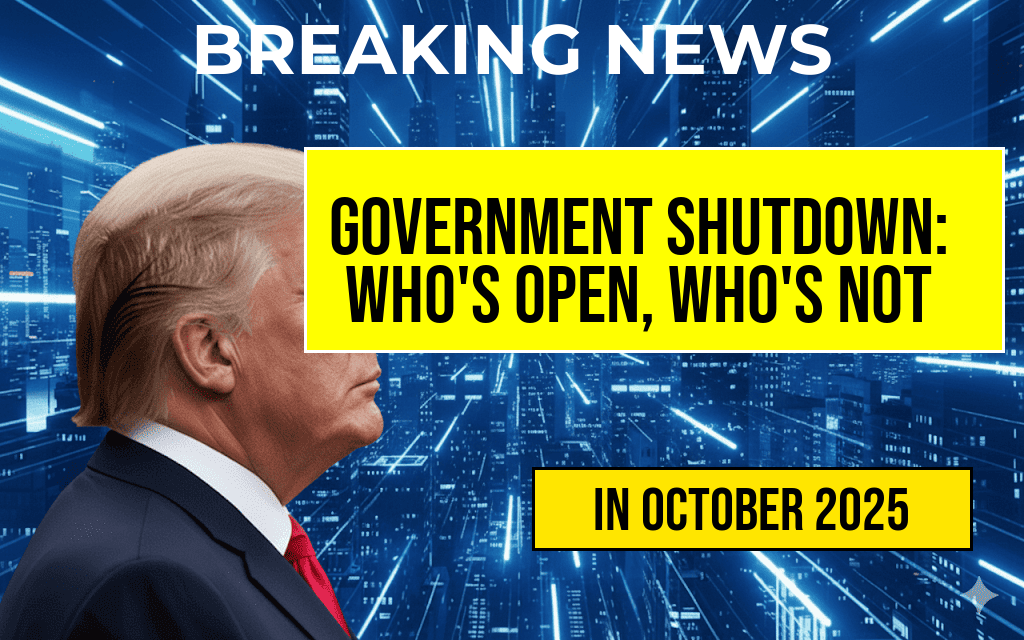The federal government has entered a partial shutdown as congressional negotiations over funding continue without an agreement. As a result, many federal agencies have halted non-essential operations, affecting millions of Americans relying on government services. While some agencies are continuing to operate under emergency or mandatory funding, others have suspended most functions, leaving employees furloughed and services disrupted. Key programs such as Social Security, the Internal Revenue Service (IRS), and Defense are navigating complex operational statuses, with critical functions either maintained or curtailed depending on funding provisions. Transportation Security Administration (TSA) personnel are expected to continue screening travelers, though some other agencies face significant reductions or complete shutdowns, creating widespread uncertainty for the public and government workers alike. This article provides a detailed agency-by-agency breakdown of who is operating and who is not amidst the shutdown, highlighting the implications for everyday Americans and federal operations.
Federal Agencies: Who Continues to Operate and Who Is Temporarily Shut Down
Social Security Administration (SSA)
- Operational Status: Largely continues to process benefits and inquiries
- Impact: Most Social Security offices are closed to the public, but beneficiaries can access online services and phone support. Payments are expected to continue as scheduled since they are funded through automatic processes.
Internal Revenue Service (IRS)
- Operational Status: Limited operations
- Impact: Most taxpayer assistance and audit functions are suspended. However, processing of refunds related to prior filings and essential cybersecurity functions remain active to ensure compliance and security.
Department of Defense (DoD)
| Function | Status |
|---|---|
| Active Military Operations | Continue with funding already appropriated |
| Non-essential Support Services | Suspended or reduced |
| Civilian Employees | Furloughed unless involved in essential activities |
While active duty personnel remain on duty, many civilian contractors and support staff are furloughed or working without pay until funding is restored.
Transportation Security Administration (TSA)
- Operational Status: Continues screening travelers at airports
- Impact: TSA agents are expected to work without pay during the shutdown, but the agency has indicated that airport security operations will continue as usual to prevent disruptions.
Other Key Agencies and Their Statuses
- Federal Emergency Management Agency (FEMA): Continues critical operations, especially related to disaster response and preparedness.
- Department of Homeland Security (DHS): Core functions remain active, though some administrative tasks are paused.
- Environmental Protection Agency (EPA): Most non-essential activities are halted; enforcement actions are scaled back.
- National Parks Service: Many parks are closed to visitors or operating with limited staff, affecting tourism and maintenance.
Impacts on Public Services and Federal Employees
Employee Furloughs and Pay Delays
Federal employees deemed non-essential face furloughs, potentially delaying their paychecks until funding resumes. Historically, paychecks are issued after the shutdown ends, leading to financial stress for thousands of workers. Essential personnel, such as law enforcement and military members, continue working, but some may do so without immediate compensation.
Public Service Disruptions
- Many government websites and in-person offices are closed or operating with limited hours.
- Tax filing assistance and benefit processing face delays, complicating financial planning for millions.
- National parks, monuments, and museums experience closures, impacting tourism and local economies.
Next Steps and Congressional Outlook
The shutdown underscores ongoing political disagreements over federal spending. Lawmakers are under pressure to reach a funding agreement to reopen the affected agencies. Historically, shutdowns have opened negotiations, but the process often extends over days or weeks, leaving services in limbo. The Biden administration and Congress continue working toward a resolution, with some advocating for temporary funding measures to sustain essential services.
For updated information on specific agencies or services during the shutdown, agencies often provide status updates on their official websites or social media channels. Citizens are encouraged to verify the operational status of services they rely on and plan accordingly.
Sources such as Wikipedia and reports from Forbes offer comprehensive overviews of past shutdowns and their implications, providing context for current developments.
Frequently Asked Questions
Which government agencies are still operating during the shutdown?
Many essential agencies such as the Department of Defense, Social Security Administration, and Transportation Security Administration (TSA) continue to operate to provide critical services, despite the shutdown.
Which government agencies have halted operations due to the shutdown?
Several non-essential agencies and services, including some parts of the IRS and other administrative offices, have temporarily ceased operations until funding is restored.
How does the government shutdown affect Social Security benefits?
During the shutdown, Social Security benefits continue to be paid, and services remain available, as the agency is considered essential. However, certain administrative functions may experience delays.
What impact does the shutdown have on the IRS and tax-related services?
The IRS may suspend certain services, including processing refunds and customer service inquiries, which could lead to delays in tax processing and assistance for taxpayers.
Will the Defense and TSA continue operations during the shutdown?
Yes, the Department of Defense and TSA are designated as essential services, so their operations, including military activities and airport security, will continue without interruption during the shutdown.

Leave a Reply